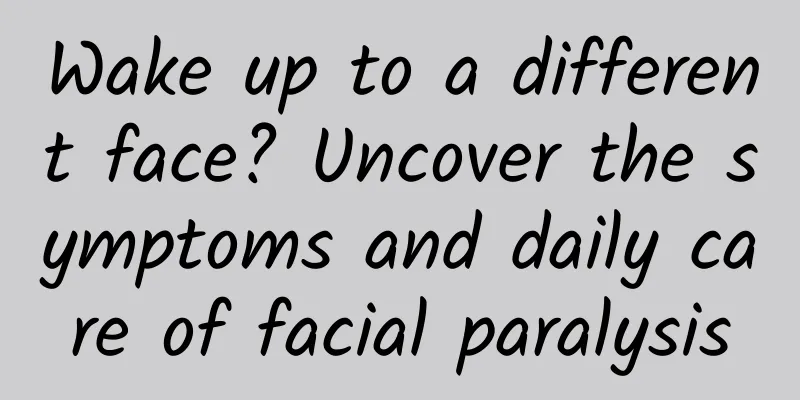[Medical Q&A] Can ultrasound not only diagnose varicose veins in the lower limbs, but also treat them?
![[Medical Q&A] Can ultrasound not only diagnose varicose veins in the lower limbs, but also treat them?](/upload/images/67f1170fd5116.webp)
|
Planner: Chinese Medical Association Reviewer: Wang Yandong, Chief Physician, Tianjin Third Central Hospital Varicose veins of the lower limbs are a common vascular disease, which is mainly manifested by the dilation, elongation, and curvature of the veins in the lower limbs. In severe cases, symptoms such as swelling, pain, and skin ulcers may occur in the lower limbs. Ultrasound examination is a commonly used method for diagnosing varicose veins of the lower limbs. Doctors can use ultrasound probes to image the great saphenous vein, small saphenous vein, common femoral vein, superficial femoral vein, deep femoral vein and other lower limb veins, observe the shape, thickness, structure of the veins, and the direction and speed of venous blood flow, identify the diseased venous segments, and assess the scope and severity of varicose veins, thereby assisting doctors in making a clear diagnosis of varicose veins in the lower limbs and providing a basis for subsequent treatment. After confirming the diagnosis of varicose veins in the lower limbs, the doctor will formulate a treatment plan based on the information obtained from various examinations and the actual situation of the patient, either surgical treatment or conservative treatment. During surgical treatment, ultrasound technology can help doctors locate the diseased veins and ensure the accuracy and safety of the operation. In order to reduce damage to patients, minimally invasive treatment under ultrasound guidance has gradually become a commonly used treatment method. For example: under ultrasound guidance, a sclerosant can be directly injected into the diseased vein to promote vein closure, which is sclerotherapy; under ultrasound guidance, a radiofrequency catheter can also be inserted into the vein to destroy the vein wall through heat energy to promote vein closure, which is radiofrequency ablation. Ultrasound-guided minimally invasive treatment causes less trauma to patients, reduces the risk of complications, and speeds up patients' recovery. |
<<: [Medical Q&A] Which group of people are quietly targeted by uterine fibroids?
>>: [Medical Q&A] Why is ultrasound called the "magic eye of non-invasive diagnosis"?
Recommend
What is congenital vaginal malformation?
As we all know, every healthy woman has a vagina....
The latest research found that "Sugar oranges can no longer be eaten"? The truth...
Rumor: "'The latest research shows that ...
Is a heart rate of 110 normal in pregnant women?
After a woman becomes pregnant, her family status...
How to treat postpartum hand pain
There are many symptoms of postpartum sickness. D...
The lochia has not been cleared for more than three months
Generally, mothers will have lochia discharge in ...
[North Xinjiang science experts say: Not that safe] Revealing the correct way to supplement calcium
In this era where calcium is the most important t...
The hot lazy dragon makes the children dizzy with fragrance right out of the pot!
As a northerner, I often eat pies and steamed bun...
How to distinguish the authenticity of yuba? Can yuba be eaten if it becomes damp and soft?
The nutritional value of yuba is similar to that ...
What to do if milk swelling and nipple blockage occur after childbirth
After giving birth, pregnant women need to feed t...
Brown period on the 10th day
Girls should understand their menstruation and pr...
Do night shifts increase breast cancer risk in women?
"In modern society, about 10% to 20% of wome...
Causes of small amount of fluid accumulation in the pelvis
A small amount of fluid accumulation in the pelvi...
Do you have dry eyes and feel tired all the time? Do you know what nutrients are needed to protect your eyes?
No. 211 Don't be a muddy world In today's...
Can I use spray for rhinitis during lactation?
Rhinitis is a very common disease. Patients with ...









